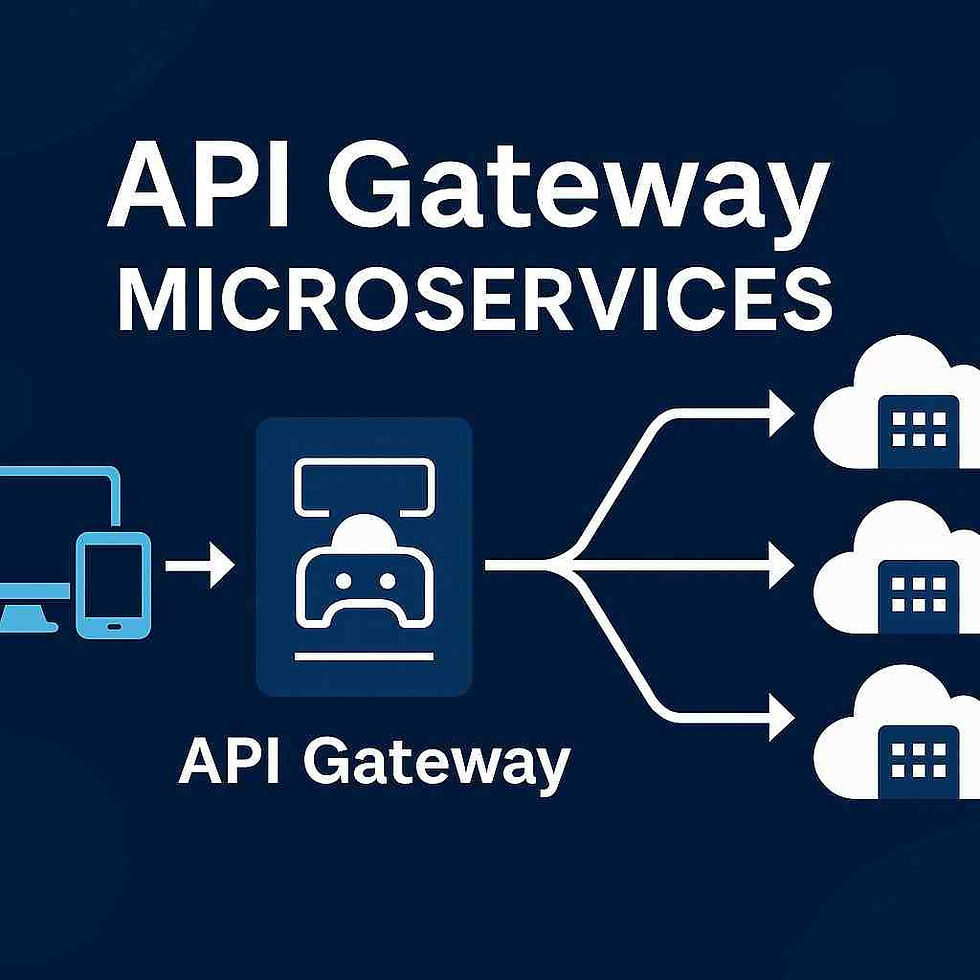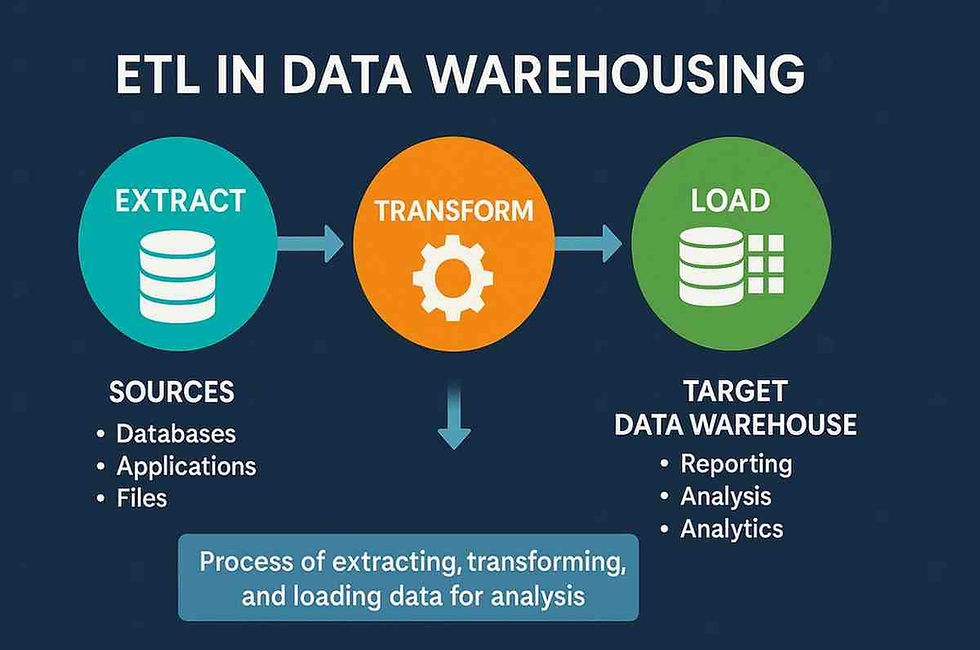Kafka vs RabbitMQ: Guide to Choosing the Right Messaging System 2025
- Gunashree RS
- Jul 5, 2025
- 6 min read
What Makes Kafka and RabbitMQ Different?
When it comes to handling massive data flows in modern applications, two messaging systems consistently dominate the conversation: Apache Kafka and RabbitMQ. Both RabbitMQ and Kafka offer high-performance message transmission for their intended use cases. However, Kafka outperforms RabbitMQ in message transmission capacity, making the choice between them crucial for your system's success.
The fundamental difference lies in their architecture and intended use cases. RabbitMQ operates as a traditional message broker focused on reliable message delivery, while Kafka functions as a distributed streaming platform designed for high-throughput data pipelines.

Performance Comparison: Numbers That Matter
Throughput Capabilities
The performance gap between these systems is significant. RabbitMQ can process 4k-10K per second, while Kafka can process 1 million messages per second. This massive difference in throughput capability makes Kafka the clear winner for high-volume applications.
However, raw throughput isn't the only metric that matters. We found that Kafka delivers the best throughput while providing the lowest end-to-end latencies up to the 99.9th percentile. At lower throughputs, RabbitMQ delivers messages at very low latencies.
Latency Considerations
While Kafka is best suited for big data use cases requiring the best throughput, RabbitMQ is perfect for low-latency message delivery. For applications requiring immediate response times with smaller message volumes, RabbitMQ often provides better performance.
When Should You Choose RabbitMQ?
Q: What scenarios make RabbitMQ a better choice?
A: RabbitMQ excels in scenarios requiring complex message routing, guaranteed delivery, and moderate scaling requirements. Here are the key use cases:
1. Complex Routing Requirements
Applications needing sophisticated message routing logic
Systems requiring different message formats for different consumers
Enterprise integrations with multiple downstream systems
2. Transactional Systems
E-commerce order processing, where message loss is unacceptable
Financial applications requiring exactly-once delivery
Banking systems handling payment confirmations
3. Moderate Scale Applications
Applications handling up to 50,000 messages per second
Systems where setup simplicity is prioritized over maximum throughput
Projects with limited infrastructure management resources
Q: What are RabbitMQ's key advantages?
A: RabbitMQ offers several distinct advantages:
Easy Setup and Management: User-friendly interface and straightforward configuration
Protocol Support: Supports 15+ protocols including AMQP, MQTT, and STOMP
Message Durability: Ensures messages aren't lost even during system failures
Flexible Routing: Direct, topic, headers, and fanout exchange options
When Should You Choose Kafka?
Q: What makes Kafka the preferred choice for certain applications?
A: Kafka can send millions of messages per second as it uses sequential disk I/O to enable a high-throughput message exchange. This makes it ideal for:
1. High-Volume Data Streaming
Real-time analytics processing millions of events
IoT sensor data collection and processing
Social media feed processing and analytics
2. Event Sourcing Systems
Applications requiring complete event history replay
Systems needing to reconstruct application state from events
Audit trails and compliance logging
3. Distributed Big Data Processing
Data pipelines feeding multiple downstream systems
Real-time ETL processes
Machine learning model training with streaming data
Q: What are Kafka's primary strengths?
A: Kafka's architecture provides several key benefits:
Massive Throughput: Handles millions of messages per second
Data Retention: Configurable retention periods from days to years
Scalability: Horizontal scaling with minimal downtime
Fault Tolerance: Distributed architecture with built-in redundancy
Architecture Differences: Smart vs Dumb Brokers
Q: How do the architectural approaches differ?
A: The consumer mode for RabbitMQ is Smart broker/dumb consumer, while that for Kafka is Dumb broker/smart consumer. This fundamental difference impacts how each system handles message processing:
RabbitMQ (Smart Broker/Dumb Consumer):
The broker handles complex routing logic
Consumers simply receive and process messages
Built-in message acknowledgment and retry mechanisms
Centralized message management
Kafka (Dumb Broker/Smart Consumer):
Consumers manage their own message processing logic
Broker focuses on high-throughput message storage and retrieval
Consumers track their own message offsets
Distributed processing responsibility
Message Delivery Patterns: Push vs Pull
Q: How do the delivery mechanisms compare?
A: One important difference between Kafka and RabbitMQ is that the first is pull-based, while the other is push-based. In pull-based systems, the brokers wait for the consumer to ask for data ('pull'); if a consumer is late, it can catch up later. With push-based systems, messages are immediately delivered to consumers.
Push-Based (RabbitMQ):
Immediate message delivery to consumers
The broker controls the message flow rate
Better for real-time processing requirements
Risk of overwhelming slow consumers
Pull-Based (Kafka):
Consumers request messages when ready
Natural back-pressure handling
Better for batch processing scenarios
Consumers can process at their own pace
Hybrid Approaches: Why 70% of Enterprises Use Both
Q: Can RabbitMQ and Kafka work together?
A: Many organizations discover that combining both systems provides optimal results. A typical hybrid architecture might use:
RabbitMQ for: Order processing, user authentication, payment handling
Kafka for: User behavior tracking, log aggregation, real-time analytics
This approach leverages each system's strengths while mitigating its respective weaknesses.
Key Decision Factors
Q: What are the three critical questions to ask?
A: Before choosing between Kafka and RabbitMQ, consider these essential questions:
1. Message Ordering Requirements
Kafka guarantees order within partitions.
RabbitMQ provides queue-level ordering but struggles with competing consumers.
2. Data Retention Needs
Kafka: Configurable retention from days to years
RabbitMQ: Messages consumed and typically deleted
3. Scale Requirements
RabbitMQ: Up to 50,000 messages per second
Kafka: Millions of messages per second with proper tuning
Performance Benchmarks and Statistics
Throughput Comparison Table
Metric | RabbitMQ | Kafka |
Messages per second | 4K-30K | 1M+ |
Latency (low load) | <10ms | 2-5ms |
Latency (high load) | Degrades significantly | Remains stable |
Setup complexity | Simple | Complex |
Protocol support | 15+ protocols | Custom protocol |
Real-World Performance Data
Recent benchmarks show that Kafka can go up to around 1,000,000 messages per second, whereas the throughput for RabbitMQ is around 4K-10K. However, the actual performance depends on factors like:
Message size and complexity
Network infrastructure
Hardware specifications
Configuration optimization
Use Case Examples from Industry Leaders
RabbitMQ Success Stories
Airbnb: Uses RabbitMQ for booking confirmation workflows
Reddit: Handles user notifications and comment processing
Robinhood: Processes financial transactions with guaranteed delivery
Kafka Success Stories
LinkedIn: Processes 7 trillion messages daily for recommendations
Uber: Tracks real-time location data for millions of rides
Netflix: Streams viewing analytics and content recommendations
Frequently Asked Questions
Q: Which is better for a microservices architecture?
A: Kafka has a very simple routing approach. RabbitMQ has other options if you need to route your messages in a more complex ways, to your consumers. For microservices, RabbitMQ often provides better service-to-service communication capabilities, while Kafka excels at event streaming between services.
Q: How do costs compare between the two systems?
A: RabbitMQ typically has lower operational costs due to simpler setup and maintenance requirements. Kafka requires more infrastructure investment but can handle much higher volumes, potentially offering better cost-per-message ratios at scale.
Q: Can I migrate from RabbitMQ to Kafka or vice versa?
A: Migration is possible but requires careful planning. The architectural differences mean you'll need to redesign your message handling logic. Many organizations choose to implement both systems for different use cases rather than migrating entirely.
Q: Which system is more reliable?
A: Both systems offer high reliability with proper configuration. RabbitMQ provides built-in acknowledgment mechanisms and dead letter queues, while Kafka offers durability through distributed logging and replication.
Q: What about cloud-managed options?
A: Both systems offer cloud-managed services: Amazon MSK for Kafka, Amazon MQ for RabbitMQ, and various other cloud provider options. Managed services reduce operational overhead but may limit customization options.
Q: How do they handle failover and disaster recovery?
A: Kafka's distributed architecture provides built-in failover capabilities across multiple brokers. RabbitMQ supports clustering and mirroring for high availability, though it requires more manual configuration.
Conclusion: kafka vs rabbitmq
The choice between Kafka and RabbitMQ isn't about finding a universal winner—it's about selecting the right tool for your specific requirements. While Kafka is best suited for big data use cases requiring the best throughput, RabbitMQ is perfect for low latency message delivery.
For high-volume, streaming applications requiring millions of messages per second, Kafka's architecture and performance capabilities make it the clear choice. However, for applications prioritizing message delivery guarantees, complex routing, and ease of setup, RabbitMQ remains the superior option.
The most successful implementations often involve both systems working together, each handling the workloads they're optimized for. As your application grows and evolves, you may find that a hybrid approach provides the best balance of performance, reliability, and operational simplicity.
Key Takeaways
Kafka dominates throughput: Handles millions of messages per second compared to RabbitMQ's thousands.
RabbitMQ excels in complex routing: Offers 15+ protocols and sophisticated message routing capabilities.
Architecture matters: Smart broker (RabbitMQ) vs smart consumer (Kafka) approaches serve different needs
Hybrid solutions are common: 70% of enterprises use both systems for different use cases.
Scale determines choice: RabbitMQ for moderate loads, Kafka for massive scale requirements.
Latency varies by load: RabbitMQ provides lower latency at small scales, and Kafka maintains consistency at high volumes.
Setup complexity differs: RabbitMQ offers an easier initial setup, Kafka requires more configuration but scales better.
Data retention varies: Kafka can store messages indefinitely, RabbitMQ typically processes and deletes
Industry adoption: Both systems power major applications from LinkedIn to Airbnb
Cost considerations: RabbitMQ has lower operational costs, and Kafka offers better cost-per-message at scale
Sources
AWS - RabbitMQ vs Kafka Comparison: https://aws.amazon.com/compare/the-difference-between-rabbitmq-and-kafka/
Confluent - Performance Benchmarking Study: https://www.confluent.io/blog/kafka-fastest-messaging-system/
DataCamp - Kafka vs RabbitMQ Technical Analysis: https://www.datacamp.com/blog/kafka-vs-rabbitmq
Alpha - Performance Metrics and Architecture: https://www.aalpha.net/blog/rabbitmq-vs-kafka-for-microservices/
OpenLogic - Feature Comparison and Use Cases: https://www.openlogic.com/blog/kafka-vs-rabbitmq
Upsolver - Architecture and Performance Analysis: https://www.upsolver.com/blog/kafka-versus-rabbitmq-architecture-performance-use-case




INDOVIP138
indovip138
indovip138
indovip138
indovip138
indovip138
indovip138
indovip138
indovip138
indovip138
indovip138
indovip138
indovip138
indovip138
indovip138
indovip138
indovip138
indovip138
indovip138
indovip138
indovip138
indovip138
indovip138
indovip138
indovip138
indovip138
indovip138
indovip138
indovip138
indovip138
indovip138
indovip138
indovip138
indovip138
indovip138
indovip138
indovip138
indovip138
indovip138
indovip138
indovip138
indovip138
indovip138
indovip138
indovip138
Link INDOVIP138
indovip138
indovip138
indovip138
indovip138
indovip138
indovip138
indovip138
indovip138
indovip138
indovip138
indovip138
indovip138
indovip138
indovip138
indovip138
indovip138
indovip138
indovip138
indovip138
indovip138
indovip138
indovip138
indovip138
indovip138
indovip138
indovip138
indovip138
indovip138
indovip138
indovip138
indovip138
indovip138
Son vaxtlar müxtəlif platformalarda oynamağa başladım və çox maraqlı təcrübələr yaşadım. İstifadə rahatlığı və geniş oyun seçimi mənim üçün əsas önəmlidir. Xüsusilə pinco kazino kimi müasir və təhlükəsiz platformalarda vaxt keçirmək çox xoş oldu. Orada həm texniki cəhətdən problemsiz, həm də istifadəçi dostu interfeys var. Canlı oyunlar da maraqlı və real hiss yaradırdı. Ümumiyyətlə, bu cür saytlar oyun təcrübəsini tam fərqli səviyyəyə qaldırır.
Midnight Cry Evangelistic Ministry , founded in 1977, is a Christ-centered Evangelistic Center Church with a mission to reach the lost, strengthen believers, and prepare hearts for the Lord’s return. Through powerful preaching, dedicated Church Ministries, and a welcoming Church Hospitality Ministry, we create a place where faith grows and lives are transformed. Rooted in love, service, and truth, we invite you to join us in sharing the Gospel, building the body of Christ, and answering the Midnight Cry.